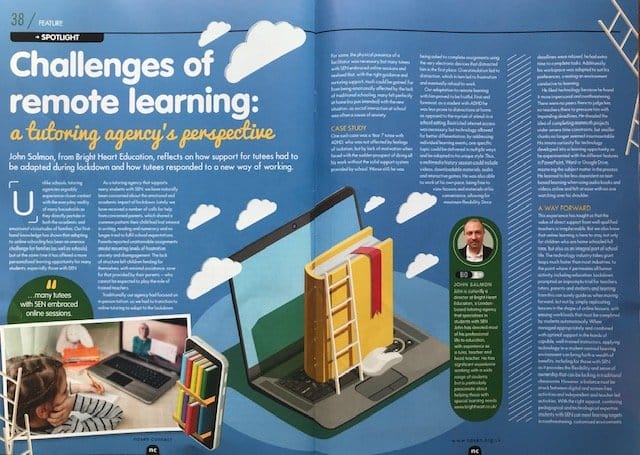A stimulating and insightful live discussion on autism dispelling misconceptions, while providing advice for parents.

Bright Heart
In a live Q & A, John Salmon, M.Ed, has an informative discussion on autism with Jolanta Lasota, CEO of Ambitous about Autism
Facebook Live with Jolanta Lasota, CEO of Ambitious about Autism
We recently held a Facebook Live Q&A to address parents’ questions about autism. This was hosted by Bright Heart director and former headteacher John Salmon, M.Ed., with questions answered by Jolanta Lasota, CEO of Ambitious About Autism. This national charity was set up in 1997 and provides support for children and young adults with ASC. More recently they have created colleges and schools in London to support young people with autism.


Key questions covered
- 1:08 -- Information pertaining to Ambitious About Autism and the support they provide for individuals with ASC
- 3:52 -- Jolanta dispels some of the myths and misconceptions surrounding autism, such as the belief that all children with autism have special abilities, lack empathy, display challenging behaviour or that the condition only affects boys
- 8:12 -- Support for parents, including how to get a diagnosis, how they can secure an EHCP and other support
- 12:41 -- The impact of lockdown on autistic children’s education, mental health and well-being and how the negative effects can be mitigated
- 19:40 -- The impact of lockdown on post-16 children as well as young adults seeking employment and the support provided by Ambitious About Autism
- 25:29 -- Advice for parents and carers, schools and the local authority in order to help children with ASC
- 28:30 -- Final words for viewers, contact information and a bried summary of the services provided by Ambitious About Autism
Do you have further questions about autism?
We would love to hear about it on our Facebook page, or feel free to get in touch directly with any questions.
Share this article




















































